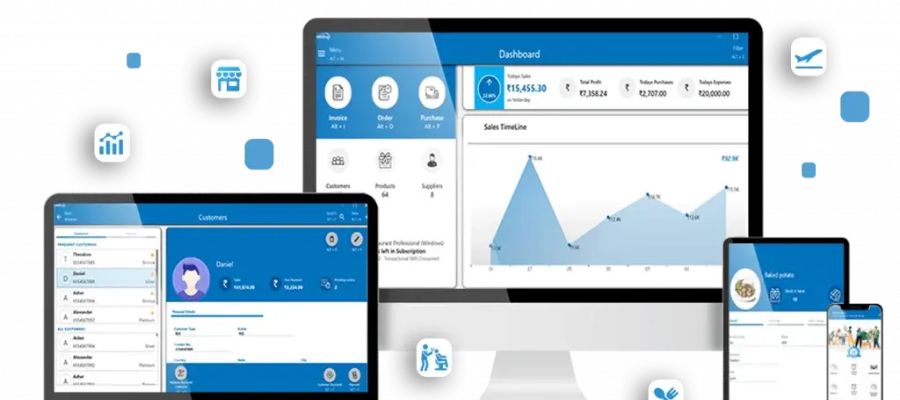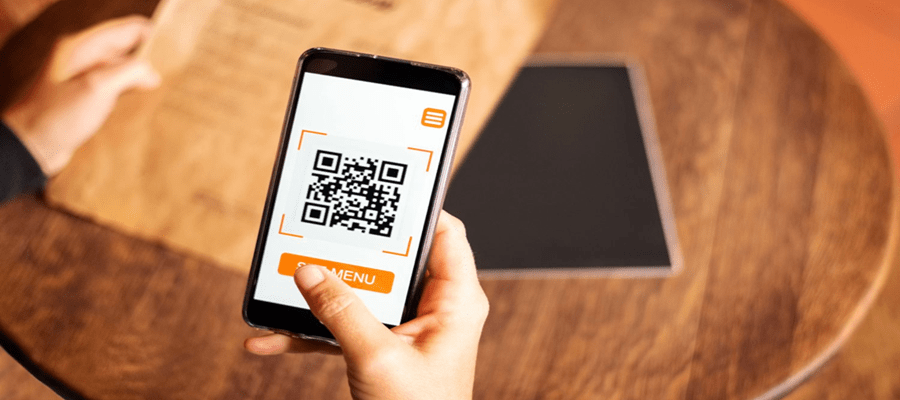
Exploring the Latest Innovations in POS Billing Software
Introduction
In today's fast-paced retail landscape, point of sale (POS) billing software has become an indispensable tool for businesses of all sizes. POS software streamlines operations, improves efficiency, and provides valuable insights into customer behavior and sales trends. As technology continues to evolve, so too does POS software, with new features and functionalities emerging to meet the changing needs of retailers.
POS Billing Software
POS billing software, also known as point of sale software or retail POS software, is a computer application used to process transactions at the point of sale. It typically includes a cash register or terminal, a barcode scanner, and a printer. POS software can be used in a variety of retail settings, including grocery stores, department stores, boutiques, and restaurants.
Benefits of POS Billing Software
There are numerous benefits to using POS billing software, including:
-
Increased efficiency: POS software can help to streamline operations and reduce the time it takes to process transactions.
-
Improved accuracy: POS software can help to reduce errors and ensure that transactions are processed accurately.
-
Enhanced customer service: POS software can help to improve customer service by providing faster and more efficient checkout experiences.
-
Better inventory management: POS software can help to track inventory levels and prevent stockouts.
-
Valuable insights: POS software can provide valuable insights into customer behavior, sales trends, and business performance.
Types of POS Billing Software
There are several different types of POS billing software available, each with its own unique features and benefits. Some of the most common types include:
-
Cloud-based POS software: This type of software is hosted on a cloud server, allowing businesses to access it from anywhere with an internet connection.
-
On-premise POS software: This type of software is installed on a local server, giving businesses greater control over their data.
-
Mobile POS software: This type of software is designed for use on mobile devices, such as smartphones and tablets.
Features of POS Billing Software
Modern POS billing software offers a wide range of features, including:
-
Barcode scanning: POS software can be used to scan product barcodes and automatically retrieve product information.
-
Customer relationship management (CRM): POS software can help to manage customer relationships and track customer loyalty.
-
Employee management: POS software can be used to track employee hours and manage employee permissions.
-
Reporting and analytics: POS software can provide detailed reports on sales, inventory, and customer behavior.
-
Integration with other systems: POS software can be integrated with other business systems, such as accounting software and e-commerce platforms.
Choosing the Right POS Billing Software
When choosing POS billing software, it is important to consider the specific needs of your business. Factors to consider include the size of your business, your budget, and the features that are most important to you.
POS Billing Software: A Comprehensive Guide
The Power of POS: Transforming Retail Operations
POS billing software has revolutionized the way retailers manage their businesses. By automating tasks, streamlining processes, and providing valuable data, POS systems have become an essential tool for success.
Choosing the Right POS: Key Factors to Consider
When selecting POS software, it's crucial to evaluate factors such as your business size, budget, desired features, and integration capabilities. Consider cloud-based vs. on-premise solutions, mobile POS options, and the ease of use for both staff and customers.
Essential Features of Modern POS Systems
Modern POS software offers a wide range of features to cater to diverse business needs. Look for systems that include:
-
Inventory Management: Track stock levels, manage low inventory alerts, and optimize stock rotation.
-
Customer Relationship Management (CRM): Build customer loyalty, track purchase history, and personalize offers.
-
Employee Management: Manage schedules, track time, and assign permissions for different roles.
-
Payment Processing: Accept various payment methods, including credit cards, debit cards, and mobile payments.
-
Reporting and Analytics: Generate detailed reports on sales, inventory, customer behavior, and employee performance.
POS Integration: Seamlessly Connect with Other Systems
To maximize efficiency and data accuracy, ensure your POS system integrates seamlessly with other business applications like accounting software, e-commerce platforms, and CRM systems.
The Future of POS: Emerging Trends and Innovations
Stay ahead of the curve by exploring emerging trends in POS technology. Look for systems that incorporate:
-
Artificial Intelligence (AI): For predictive analytics, inventory optimization, and personalized recommendations.
-
Augmented Reality (AR): To enhance the customer experience with interactive product displays.
-
Biometric Authentication: For secure payment processing and fraud prevention.
-
Mobile POS: To enable flexible transactions and omnichannel retailing.
Overcoming Challenges and Maximizing Benefits
Implementing a POS system can be a significant investment. Address potential challenges like data migration, staff training, and ongoing maintenance to ensure a smooth transition and maximize the benefits of your POS solution.
Case Studies: Real-World Success Stories
Learn from the experiences of other businesses that have successfully implemented POS software. Discover how POS systems have helped them improve efficiency, increase sales, and enhance customer satisfaction.
Essential Features of Modern POS Systems
Modern POS software offers a wide range of features to cater to diverse business needs. Look for systems that include:
-
Inventory Management: Track stock levels, manage low inventory alerts, and optimize stock rotation.
-
Customer Relationship Management (CRM): Build customer loyalty, track purchase history, and personalize offers.
-
Employee Management: Manage schedules, track time, and assign permissions for different roles.
-
Payment Processing: Accept various payment methods, including credit cards, debit cards, and mobile payments.
-
Reporting and Analytics: Generate detailed reports on sales, inventory, customer behavior, and employee performance.
POS Integration: Seamlessly Connect with Other Systems
To maximize efficiency and data accuracy, ensure your POS system integrates seamlessly with other business applications like accounting software, e-commerce platforms, and CRM systems.
Future Trends in POS Billing Software
As technology continues to evolve, we can expect to see even more innovative POS billing software solutions in the future. Some of the latest trends include:
-
Artificial intelligence (AI): AI can be used to improve inventory management, customer service, and fraud prevention.
-
Augmented reality (AR): AR can be used to provide customers with more information about products and enhance the shopping experience.
-
Biometric authentication: Biometric authentication can be used to secure POS transactions and prevent fraud.
-
Integration with social media: POS software can be integrated with social media platforms to allow customers to share their shopping experiences.
Conclusion
The retail industry is constantly evolving, and POS billing software is at the forefront of this transformation. As businesses strive to improve efficiency, enhance customer experiences, and stay ahead of the competition, POS software has become an indispensable tool.
By choosing the right POS software, retailers can streamline their operations, reduce costs, and gain valuable insights into their business. Modern POS systems offer a wide range of features, from inventory management and employee scheduling to customer loyalty programs and advanced analytics.
As technology continues to advance, we can expect to see even more innovative POS solutions emerge. Artificial intelligence, augmented reality, and biometric authentication are just a few examples of the cutting-edge technologies that are being integrated into POS systems.
By embracing these innovations, retailers can stay competitive and provide their customers with the best possible shopping experience. POS billing software is not just a tool; it is a strategic investment that can help businesses thrive in today's fast-paced retail landscape.


